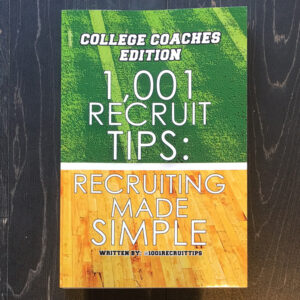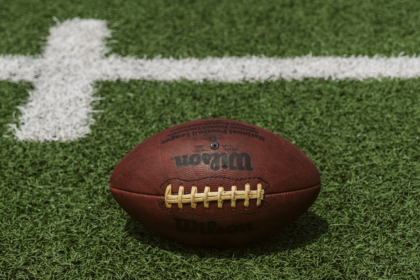A huge resource-waster for you: putting a ton of travel time and money into recruiting a player who will never be admitted into the University. Every Admissions Office is different. Each school varies greatly on their admissions standards and how flexible they are with the Athletic Department.
When you take a new job you need to immediately find out:
#1- What are the minimum requirements to be admitted to the University (may be higher than NCAA Sliding Scale requirements)
#2- How flexible is the University with the Athletic Department when admitting players of your sport?
If you are at an academically-tough university that doesn’t allow for much extra consideration on admissions decisions, decide early about how much time you will put into recruiting upperclassmen who may have too much ground to make up academically, in a year or two.
Most universities have a designated liaison between Admissions and the Athletic Department, so coaches normally communicate with their internal Athletic Department liaison, who will communicate with the University directly. Speak directly through your Athletic Department contact, it’s not common or recommended for coaches to communicate with Admissions directly.
When identifying players for potential scholarship offers, work quickly to get a copy of their unofficial transcript to get a true picture of where the player is at– don’t just take their coach’s word for it. If you’re slightly interested, request a copy of their transcript!
Some universities make no exceptions for athletes who don’t qualify under general admissions guidelines while other universities may barely set a minimum standard and allow nearly anyone in, if requested. Find out what the minimum standards are at your university. You don’t want to waste a scholarship on a player who will eventually fail to enroll days or weeks before the semester starts!
You also need to evaluate if the recruit has enough credits to be on track to graduate, what are their deficiencies? Evaluate their Core Course GPA and see if their ACT/SAT test scores are available and if they’re qualifying. Are their SAT/ACT scores borderline qualifying or do they have great scores? If they haven’t taken the ACT or SAT yet or if scores are significantly low—reinforce the importance of taking the tests soon to the prospect, their parents and their coach. SAT/ACT scores are often the final hurdle needed to get through the NCAA Eligibility Center and Admissions Department, and players can be rejected after signing their NLIs.
BOOK: Order ‘Recruiting Made Simple’ with hundreds of recruiting tips for college coaches!
Sit down with your Athletic Department Compliance Office and Academics Office to get familiar with the basic policies and procedures of the department so that you aren’t tripped up later by high standards. Remember, TIME is your most valuable resource, don’t waste it on players who will never qualify!
Get to know the academics of your top recruits early! Get unofficial transcripts, core course GPA’s and their SAT/ACT scores now! Outline their core course deficiencies and SAT/ACT score goals to get an idea of how close they are to qualifying.





